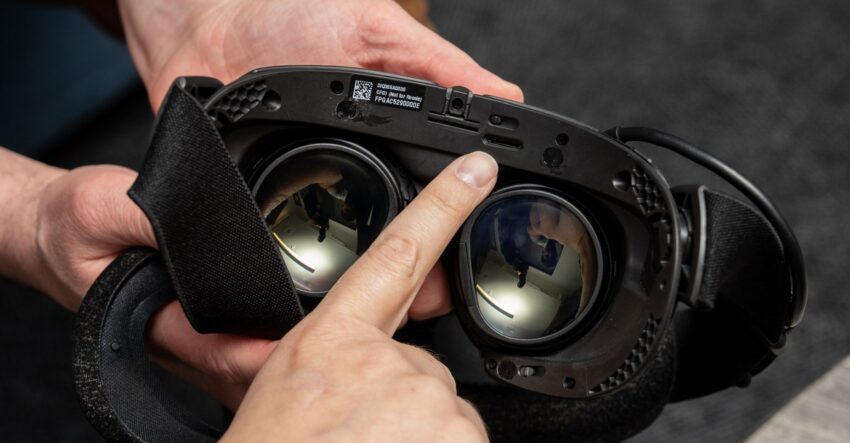
Valve is set to revolutionize the gaming landscape once again by integrating microSD cards into its upcoming Steam Frame VR headset and Steam Machine PC, positioning them as the next generation of game cartridges.
The Evolution of Gaming Hardware
Over the years, gaming hardware has undergone significant transformations, from bulky consoles to sleek handheld devices. The introduction of the Steam Deck marked a pivotal moment in this evolution, allowing gamers to access an extensive library of PC games on the go. The device’s microSD card slot not only expanded its storage capabilities but also redefined how players interact with their game libraries. This innovation has paved the way for Valve’s latest venture, which aims to further enhance the utility of microSD cards in gaming.
The Steam Deck: A Game-Changer
The Steam Deck has been a game-changer in the portable gaming market since its release. It allows players to enjoy a vast array of PC games, ranging from indie titles to AAA blockbusters, all in a handheld format. This versatility has attracted a diverse audience, from casual gamers to hardcore enthusiasts. The ability to expand storage through microSD cards has been a significant advantage, enabling users to carry an extensive library of games without worrying about limited internal storage.
MicroSD Cards: The New Game Cartridges
Valve’s decision to incorporate microSD cards as integral components of its new hardware signifies a shift in how games are distributed and stored. Traditionally, game cartridges or discs were the primary means of delivering games to players. However, with the advent of digital downloads and cloud gaming, the landscape has changed dramatically. MicroSD cards offer a hybrid solution, allowing for both physical storage and the convenience of digital access.
The Steam Frame VR Headset
The Steam Frame VR headset is poised to take virtual reality gaming to new heights. By utilizing microSD cards, Valve is not only enhancing the headset’s storage capabilities but also streamlining the gaming experience. Players will be able to download and store VR titles directly onto their microSD cards, making it easier to switch between games without the need for lengthy installations or downloads.
Enhanced Portability
One of the standout features of the Steam Frame VR headset is its portability. Gamers can easily transport their microSD cards, allowing them to take their entire VR library with them wherever they go. This level of convenience is particularly appealing for those who attend gaming conventions or multiplayer events, where sharing games and experiences is a common practice.
Compatibility and Versatility
Valve’s commitment to compatibility is evident in its approach to microSD cards. The Steam Frame VR headset will support a wide range of microSD card brands and capacities, ensuring that players can choose the storage solution that best fits their needs. This versatility is crucial in a market where gamers often have varying preferences for storage size and speed.
The Steam Machine PC
Alongside the Steam Frame VR headset, Valve is also introducing the Steam Machine PC. This new gaming rig aims to provide a seamless experience for players who prefer traditional gaming setups. By incorporating microSD card support, the Steam Machine allows users to expand their storage options significantly, accommodating the growing size of modern games.
Future-Proofing Gaming
As games continue to evolve in terms of graphics and complexity, the need for larger storage solutions becomes increasingly important. The Steam Machine’s microSD card compatibility ensures that players can future-proof their gaming experience without needing to invest in expensive internal upgrades. This approach aligns with Valve’s philosophy of making gaming more accessible and user-friendly.
Community and Modding Support
Another significant advantage of using microSD cards is the potential for community-driven content. Gamers often enjoy modding their favorite titles, and the ability to store mods on microSD cards makes it easier to manage and switch between different versions of games. This flexibility fosters a vibrant community of creators and players who can share their experiences and enhancements with one another.
Stakeholder Reactions
The announcement of microSD card integration in Valve’s new hardware has garnered mixed reactions from industry stakeholders. Many developers and gamers have expressed enthusiasm about the potential for increased storage and flexibility. The gaming community has long sought solutions to the growing size of game files, and Valve’s approach appears to address this concern effectively.
Developers’ Perspective
Developers have welcomed the idea of using microSD cards as a means of distributing games. This method allows for a more streamlined process, enabling developers to focus on creating content rather than worrying about distribution logistics. Additionally, the ability to offer physical storage options may appeal to collectors and enthusiasts who prefer tangible copies of their games.
Gamers’ Concerns
While many gamers are excited about the potential of microSD cards, some have raised concerns regarding compatibility and performance. Questions about the speed and reliability of various microSD cards have emerged, with players wanting assurance that their chosen storage solution will not hinder gameplay. Valve’s commitment to supporting a wide range of brands and capacities may alleviate some of these concerns, but ongoing communication will be essential to maintain player trust.
Implications for the Gaming Industry
Valve’s integration of microSD cards into its new hardware could have far-reaching implications for the gaming industry as a whole. As more companies explore similar storage solutions, we may see a shift away from traditional physical media. This transition could lead to a more flexible and accessible gaming ecosystem, where players can easily manage their libraries and access content on the go.
Environmental Considerations
Another important aspect to consider is the environmental impact of gaming hardware. The shift towards microSD cards may reduce the need for plastic cartridges and discs, contributing to a more sustainable gaming industry. As environmental concerns continue to grow, companies that prioritize eco-friendly practices may gain a competitive edge in the market.
Potential Challenges
Despite the many advantages of using microSD cards, challenges remain. Ensuring that players have access to high-quality, reliable storage solutions will be crucial in maintaining a positive gaming experience. Additionally, as the gaming landscape continues to evolve, developers will need to adapt their strategies to accommodate new storage methods and distribution models.
Conclusion
Valve’s decision to make microSD cards the next game cartridges represents a significant step forward in the evolution of gaming hardware. By integrating this technology into the Steam Frame VR headset and Steam Machine PC, Valve is not only enhancing the gaming experience but also addressing the growing demand for flexible storage solutions. As the gaming industry continues to evolve, the implications of this shift will be felt across the board, from developers to gamers and beyond. The future of gaming is undoubtedly exciting, and Valve’s innovations are set to play a pivotal role in shaping it.
Source: Original report
Was this helpful?
Last Modified: November 14, 2025 at 6:38 pm
0 views















